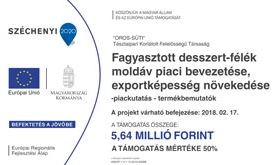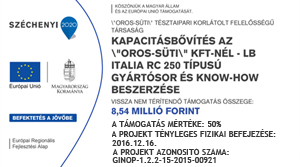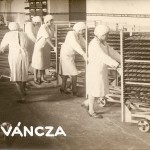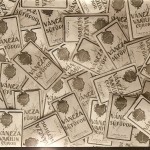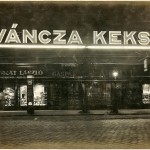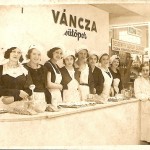Established in 1925
About Váncza
T he recipe of the first Hungarian baking powder, the famous VÁNCZA baking powder was accidently discovered by József Váncza, the pharmacist, when he was making an experiment. However, he started to work as a pharmacist in his father’s pharmacy, he soon realised the bigger business opportunity in the confectionery industry.
He launched the company in 1924. Based on his own recipes he started to produce vanilla sugar, than cream powders beside the baking powder. Later the palette of the products was broaden with bisquits, chocolate and other kinds of sweets and soon the number of the eployees reached 300. In 1931 he was the first in Hungary who started to produce stock cube that he offered in 20 different flavours for the consumers. József Váncza always took care of the company’s image, he ensured significant marketing support for his business what was unique at that time. The company made the first neon outdoors on the main square Oktogon in Budapest. The main feature of the products was their yellow-red color combination, even the agents’ delivery vans were yellow-red colored.
He also took care for the retailers who bought his products in bigger quantity by remunerating them with branded presents from the company. Due to the remarkable outdoor and other commercials shortly the VÁNCZA brand became widely known. Who wouldn’t have known the slogan, which is famous even today? In English it says: „Let’s keep abreast of the times, bake with VÁNCZA baking powder!”
The very popular recipe book among housewifes contained simple and money saving recipes – which was compiled and illustrated by József Váncza – was published over and over. There are more than 30 reprints until today. The recipes are famous for their relatively cheap components and of course you have to use the VÁNCZA baking powder or the VÁNCZA vanilla sugar for each. With his outstanding ability to business and enterpreneurship it is not a surprise to become a marketleader with some of his products against strong foreign brands on the home market. In 1948 after the second world war he closed the factory due to the gradual nationalisation process.



